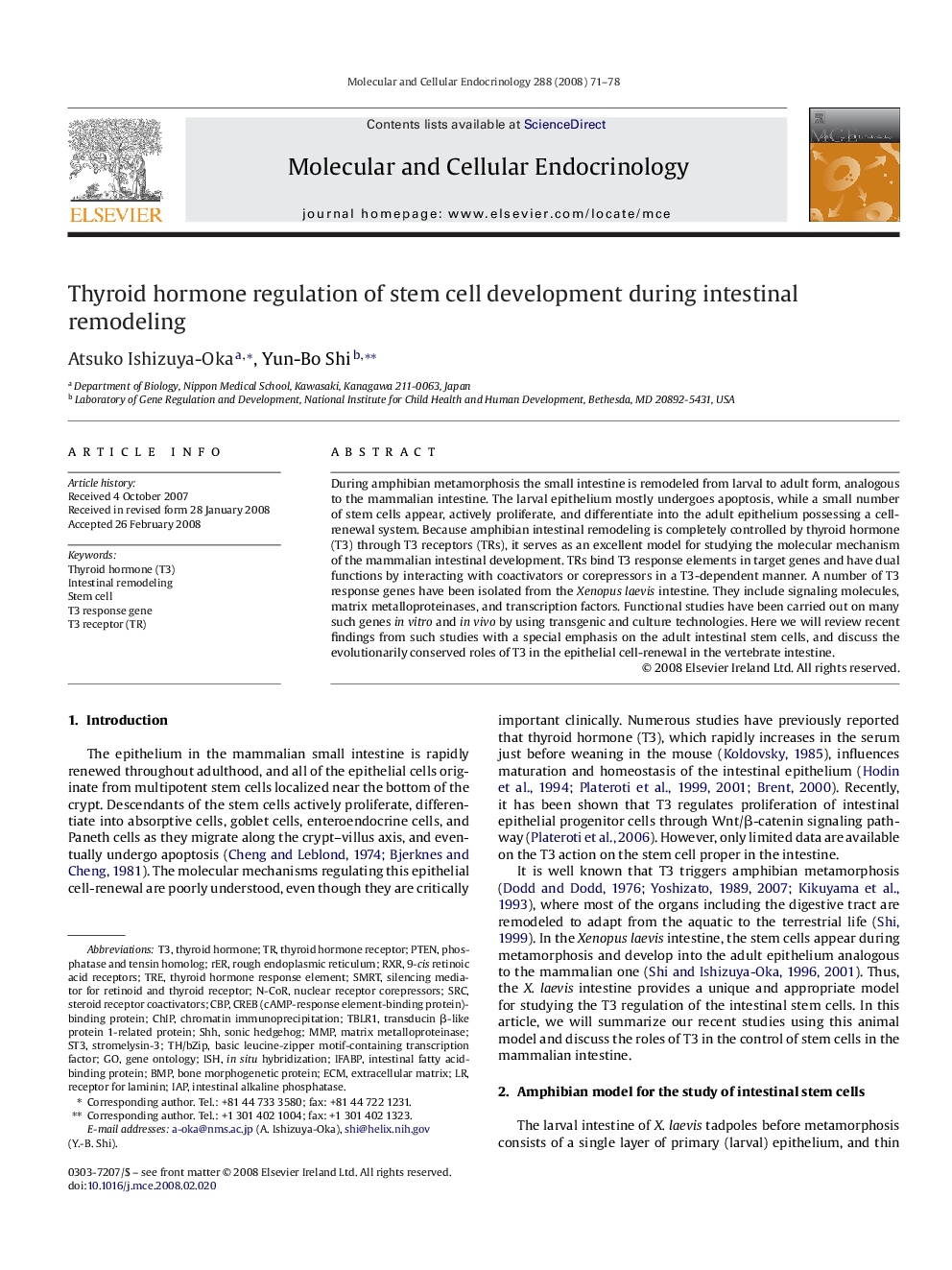| Article ID | Journal | Published Year | Pages | File Type |
|---|---|---|---|---|
| 2197684 | Molecular and Cellular Endocrinology | 2008 | 8 Pages |
During amphibian metamorphosis the small intestine is remodeled from larval to adult form, analogous to the mammalian intestine. The larval epithelium mostly undergoes apoptosis, while a small number of stem cells appear, actively proliferate, and differentiate into the adult epithelium possessing a cell-renewal system. Because amphibian intestinal remodeling is completely controlled by thyroid hormone (T3) through T3 receptors (TRs), it serves as an excellent model for studying the molecular mechanism of the mammalian intestinal development. TRs bind T3 response elements in target genes and have dual functions by interacting with coactivators or corepressors in a T3-dependent manner. A number of T3 response genes have been isolated from the Xenopus laevis intestine. They include signaling molecules, matrix metalloproteinases, and transcription factors. Functional studies have been carried out on many such genes in vitro and in vivo by using transgenic and culture technologies. Here we will review recent findings from such studies with a special emphasis on the adult intestinal stem cells, and discuss the evolutionarily conserved roles of T3 in the epithelial cell-renewal in the vertebrate intestine.
